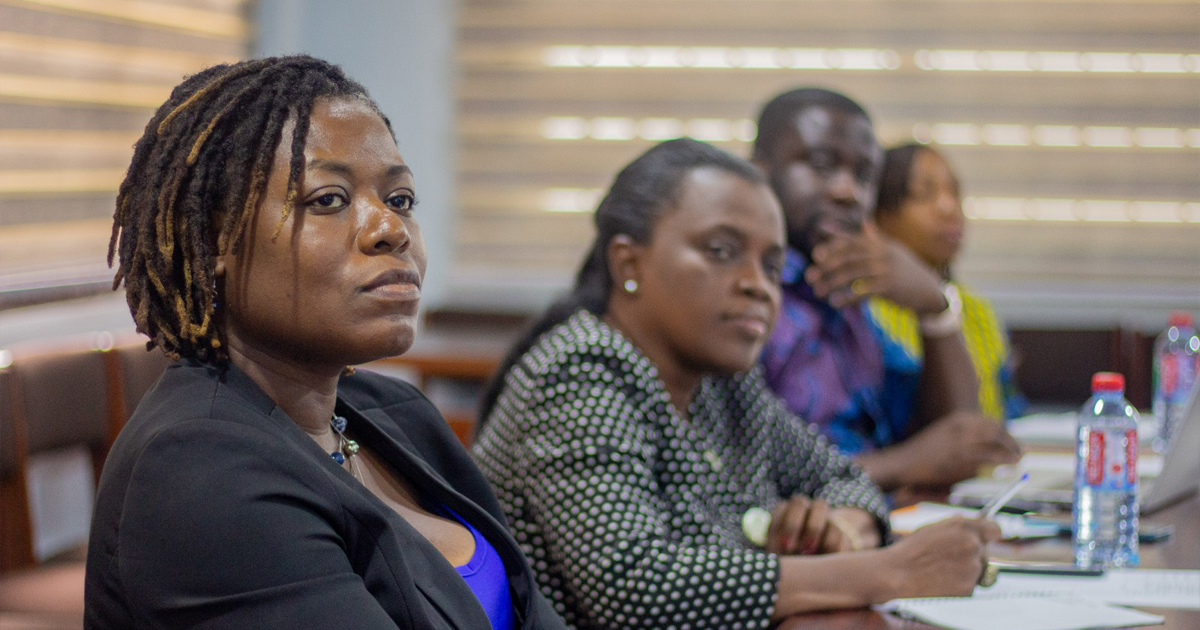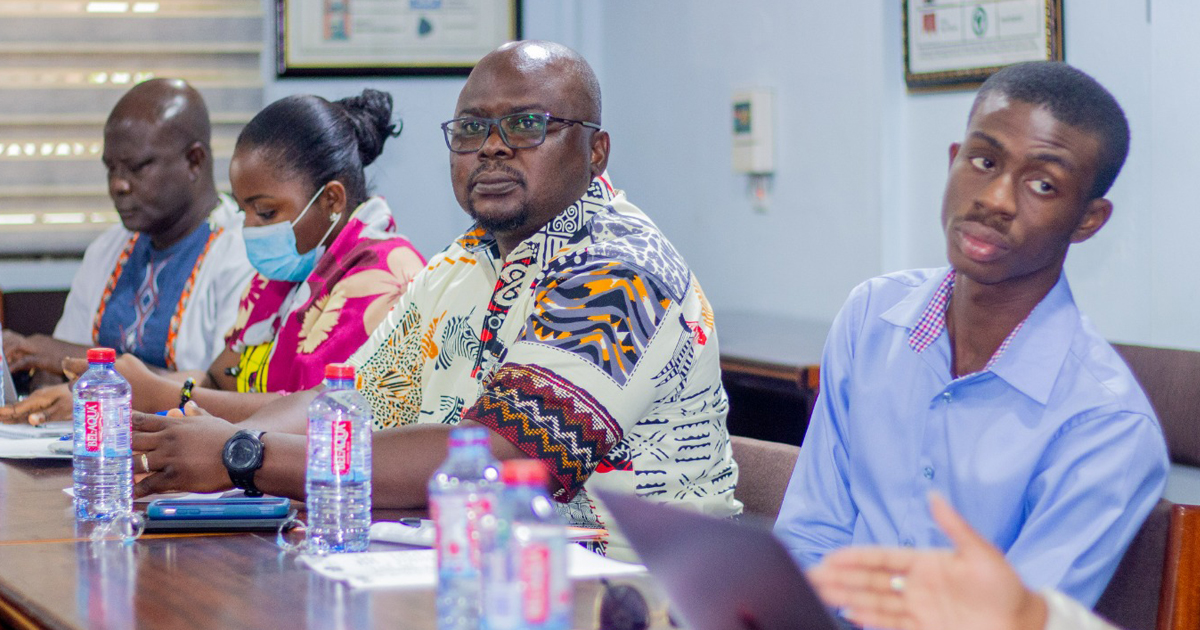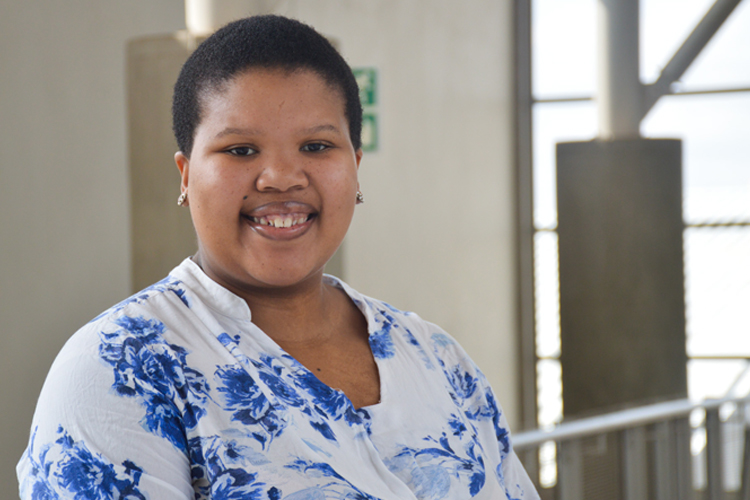On 8 September 2023, the Centre for Human Rights, Faculty of Law, University of Pretoria in partnership with the Centre for Democracy and Development (CDD) and Parliamentary Network Africa (PNAfrica), hosted a high-level discussion regarding civil society entry points into the African Union (AU). The discussion took place in Accra, Ghana with participants from various civil society organisations (CSOs) across Africa.
The African Union (AU)’s Agenda 2063 continues to be the primary vision for Africa’s development. It is a vision where the continent’s citizens are front and centre in defining the development agenda and where Africa’s resources benefit all Africans.
The Constitutive Act of the African Union (AU) gives civil society organisations (CSOs) a role in the development and implementation of policies related to governance, democracy, peace and security. The contribution of CSOs to the AU’s work covers a diverse range of roles. This includes agenda setting, policy development, enhancing research and policy capacities, data production and dissemination, contributing to peace operations, stakeholder mobilisation; and monitoring the extent to which the AU and its member states deliver on their commitments and programmes.

However, CSOs face significant challenges in their attempts to engage the AU effectively. Paul N.K. Aborampah-Mensah, Programmes Manager for the Security Sector, Local and Urban Governance at CDD, presented on how CSOs can make use of old and new pathways into the AU, with a particular focus on the Economic, Social and Cultural Council (ECOSOCC). One of the primary avenues in which CSOs engage with the AU is through the AU’s advisory body, the ECOSOCC. Aborampah-Mensah highlighted that ECOSOCC is the organ tasked to mobilise and facilitate civil society engagements with the AU, the AU AGA organs and inputs into AU decisions. Some of the key objectives of ECOSOCC include promoting continuous dialogue between all segments of the African people on issues concerning Africa and its future; forging strong partnerships between governments and all segments of civil society, in particular women, the youth, children, the Diaspora, organised labour, the private sector, and professional groups; and promoting the participation of African civil society in the implementation of the policies and programmes of the Union. For Aborampah-Mensah, it is crucial to understand the objectives of ECOSOCC to evaluate it as an old pathway in engaging with the AU. He pointed out some of the challenges CSOs face when dealing with ECOSOCC. Firstly, ECOSOCC is a membership-based platform and therefore automatically precludes sections of African people. Secondly, the formalities for accreditation are not well publicised and are exclusionary in nature. Thirdly, there are conflicting arrangements among the AGA organs – each of the AGA organs has its own records of CSO partners they choose to engage, even though ECOSOCC is supposed to be the facilitator of CSO engagements with the AGA organs. Thus, the existing and formalised approach and structure for CSOs to access and engage with the AU and its organs has become too centralised and inherently discriminatory.
According to Aborampah-Mensah, going forward, there must be publicity and awareness campaigns on AU entry points for CSOs. There also needs to be a review of the accreditation requirements that do not require stringent formalities. Finally, there needs to be an intensification of traditional and new media platforms to engage African people – this includes a deepened local partnership in member states.
Bonolo Makgale, Programme Manager Democracy and Civic Engagement Unit at the Centre, facilitated the conversation around the Pan-African Parliament (PAP) as an entry point into the AU. A pertinent question to ask is the extent to which the PAP has created avenues to engage with African citizens effectively. The PAP has recognised CSOs as essential partners in efforts to promote human rights, legislative reforms, and other initiatives that further good governance and democracy in Africa. The Pan-African Parliament Civil Society Forum (PAP CSO Forum) is a network of African Civil Society Organisation that aims to strengthen civil society and the PAP formal mechanisms of engagement and create avenues for civil society to effectively engage with the PAP.
Civil society is the primary means through which the PAP can forge a link between itself and domestic constituencies in African states. It is only by forging a meaningful relationship with African civil society that the vision of an inclusive PAP that embodies the voices of all Africans can and will be realised.
The PAP has in recent times faced various challenges, key among them is the prevailing political leadership challenges, and the budget cuts by AU. The budget cut hinders the ability of the PAP to fulfil its mandate. An additional challenge for the PAP is the disconnect between the PAP and domestic parliaments. There remains very little accountability mechanics that ensure that member states report to domestic parliaments after each session. The PAP is one of the key entry points for CSO engagements with the AU. However, for it to be truly effective the PAP Malabo Protocol must be ratified to grant the continental parliament full legislative powers.
For more information, please contact:
Tel: +27 (0) 12 420 4199
u18020322@tuks.co.za
Tel: +27 (0) 12 420 4199
tariro.sekeramayi@up.ac.za




